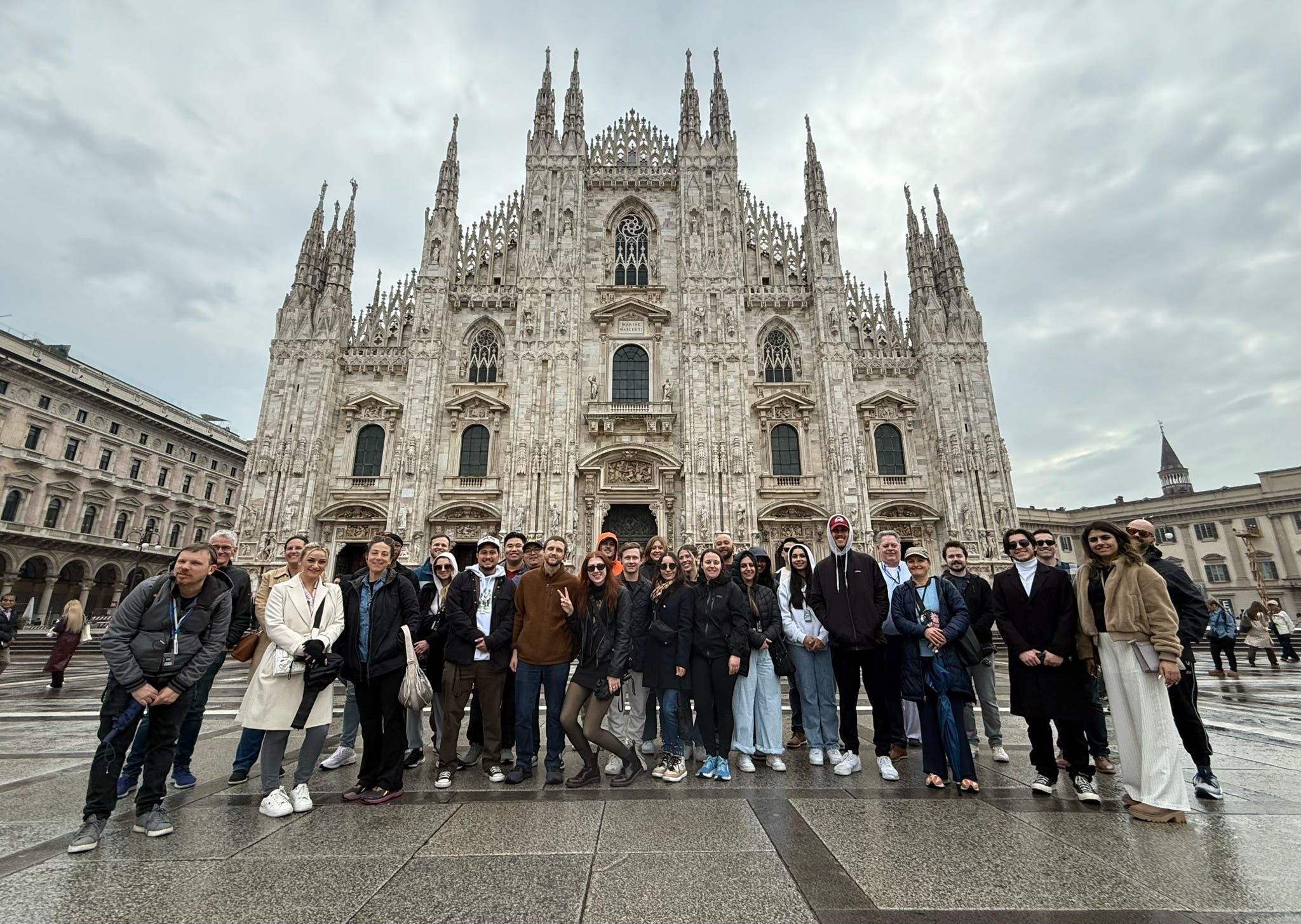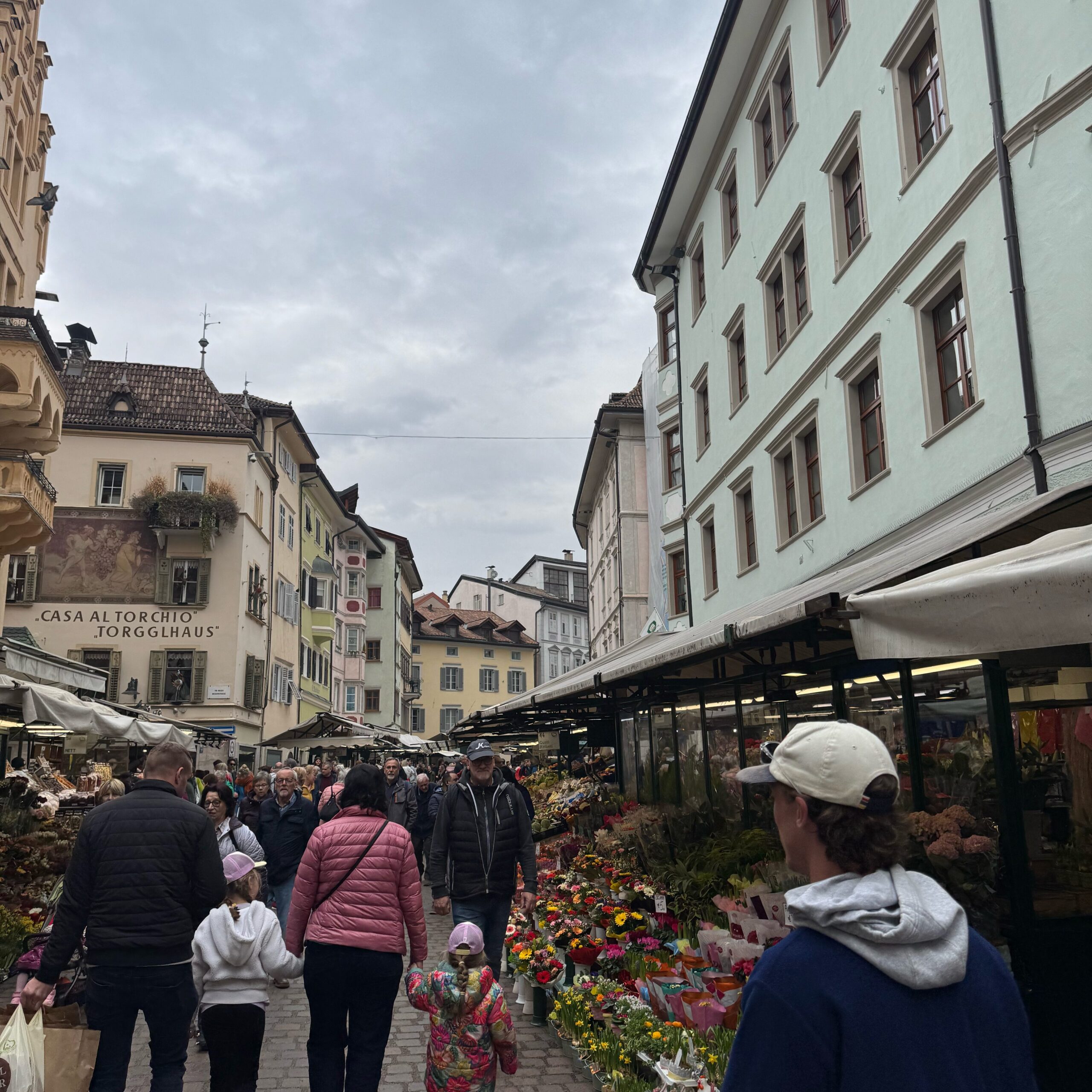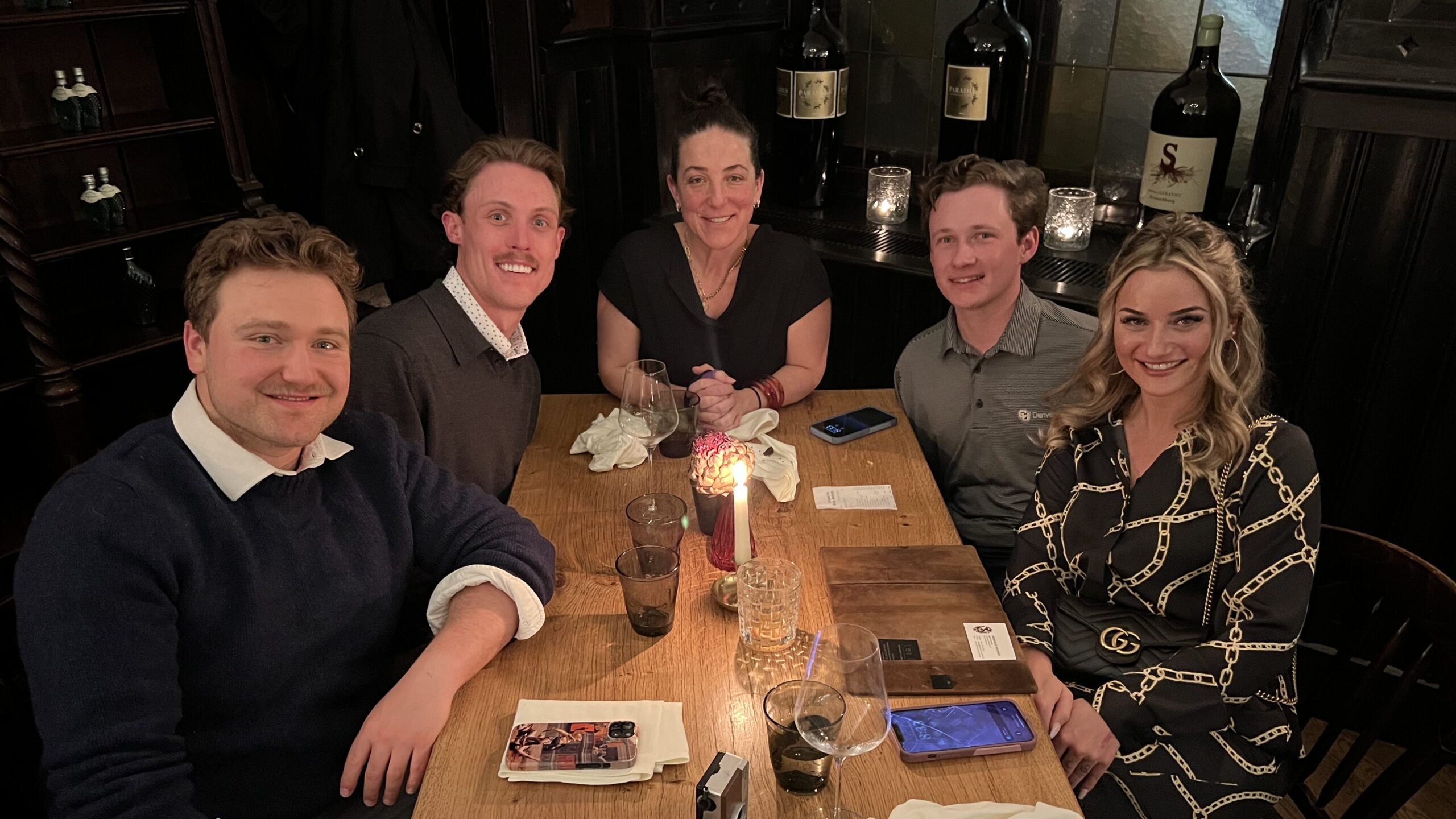
This past March, the One Year MBA cohort returned from an 11-day trip abroad to Munich, Germany; Innsbruck, Austria, and Milan, Italy. While the trip was centered around immersion in foreign businesses and cross-cultural learning, it delivered just as much on the fronts of food, fun and European living.
Early mornings were jam-packed with visits to various companies; notably, the global headquarters of giants such as BMW, Pirelli, and Dolce & Gabbana. At BMW’s Hydrogen Fuel Cell research lab, we got a glimpse into how the automotive world is evolving and testing sustainable fuels and technology. Dolce & Gabbana offered a tour of their surprisingly wide range of products, from zebra dinner plates to perfumes and sofas. Reflecting on the significance of our itinerary, our international instructor Jill Lohmiller noted, “The combination of visiting Munich and Milan highlights a unique cultural contrast between two of Europe’s business hubs. Students got to see this contrast first-hand, in a number of ways. The newly-formed City2City partnership between Denver and Munich played a large role in our decision to visit Munich and fostered valuable connections to top leadership at companies like BMW and Ororatech. The CU Denver Business School is grateful to be a part of this transatlantic partnership which made the impact of the course abroad even stronger for our students.”
While visiting the headquarters of global companies was very exciting, it was the visits to some of the lesser-known companies and startups that the cohort enjoyed most. OroraTech GmbH, based in Munich, is a promising startup that builds satellites equipped with thermal cameras—launched aboard SpaceX rockets—that assist in detecting wildfires in vast regions of the world where early detection can make all the difference in taming the blaze. This particular business visit was a result of the aforementioned City2City partnership between Denver and Munich. In Milan, we visited Ellemaster, a lesser known yet significant player in the production of computer chips and electronic parts for just about every major industry. We were greeted with an introduction and tour of the plant floor by Ellemaster’s very own President and CEO, Valentia Cogliati alongside other company executives. While chip manufacturing and (literal) rocket science may fall outside my expertise, this eventually became the theme of the trip: We weren’t there to show off what we know but learn about what we didn’t.
In addition to business visits, many of our mornings were spent with speakers from government agencies including SPRIND, an independent branch of Germany’s Federal Agency for Disruptive Innovation. Their mission is to fund the high-risk, high-reward innovative projects during the “valley of death” period of growth, so named due to the fact these companies are deemed too new for significant investment, and too small for private-sector investors. SPRIND seeks to strengthen the German and European start-up and venture capital ecosystem by specifically addressing regulatory or systematic obstacles—a massive challenge with more hurdles than one may find in the United States. The speaker from SPRIND aptly summarized the excessive regulatory environment by pointing out that Munich has essentially three mayors (Lord Mayor, and two Deputy Mayors), and six political parties.
We also visited Munich’s Department of Labor and Economic Development, where we learned how the city attracts and retains skilled labor, promotes startup ecosystems, and navigates the balance between economic growth and social responsibility. Most notable from our discussion was their dire warning to not bring your passport to Oktoberfest: Munich’s US consulate issues, on average, 500 emergency US passports each year to Americans who lose them at the festival.

I could write many more pages about the company visits alone, but what really solidified our time abroad was the time spent outside of company tours, exploring the streets of Munich and Milan. Coming from the United States, it’s easy to forget how abnormal some parts of our life relative to other parts of the world. For starters, the scale, which can be explained many ways: Alaska is larger than Germany, France and Spain combined, or that California’s GDP is larger than any of the European Union’s 27 countries. These statistics are interesting on paper, but it’s a very different feeling to live it. Although different, that’s not to say bad. It was very fun to experience these cultural differences (even if the hotel rooms were tiny).
If you are in the US and want to visit another country, it’s a safe bet to say you’re going to fly there. In Europe, there are multiple methods of transportation that broaden the experience of travel. Rather than fly from Germany to Italy, our group traveled by bus, giving us a ground-level view of the continent’s scale and geography. The 7-hour journey from Munich to Milan included a stop in Brunswick, Austria, where we grabbed coffee and snapped some photos before continuing through the Alps, past Italy’s endless vineyards and dramatic mountain landscapes. It was a travel day, but also one of the most scenic and memorable parts of the trip.

The second half of the trip, spent in Milan, began with a fully free day to explore the city and most of us immediately Googled the nearest laundromat. An average day consisted of formal business attire for our morning and afternoon business visits (usually two per day), casual clothes depending on your restaurant choice, and then something more nightlife-appropriate in the evenings. In Germany, the nightlife didn’t start till after 11 PM, but the beer halls of Munich proved to be a reliable use of our time between the two. All of this is to say, a laundromat was urgently needed.

On our first and final nights of the trip, the cohort had group dinners in Munich and Milan, respectively, alongside our program instructor Jill Lohmiller, program administrator Melissa Galvagni, and even the Dean of CU Denver’s Business School, Scott Dawson, who joined us on the latter half of the trip spent in Italy. These bookended dinners exposed the group to culinary traditions and comradery across our host countries. Lohmiller, Galvagni, and other Denver-based staff of the OYMBA program spent many months prior to ensure our trip went smoothly, and managed to strike the perfect balance of keeping the trip academic, while affording us the freedoms needed to enjoy self-exploration (Ms. Lohmiller, we all stuck to your policy of moderation, promise.) One of the trip’s most memorable evenings came at the end of our trip thanks to Martin Mantegini, our in-country partner and guide throughout all three countries. Martin also happens to be a certified wine sommelier, and on one of our final nights, he hosted a private wine tasting for our group in a Milanese cellar. It was equal parts educational and fun and served as the perfect send-off after an incredibly fun and fast-paced couple of weeks.


